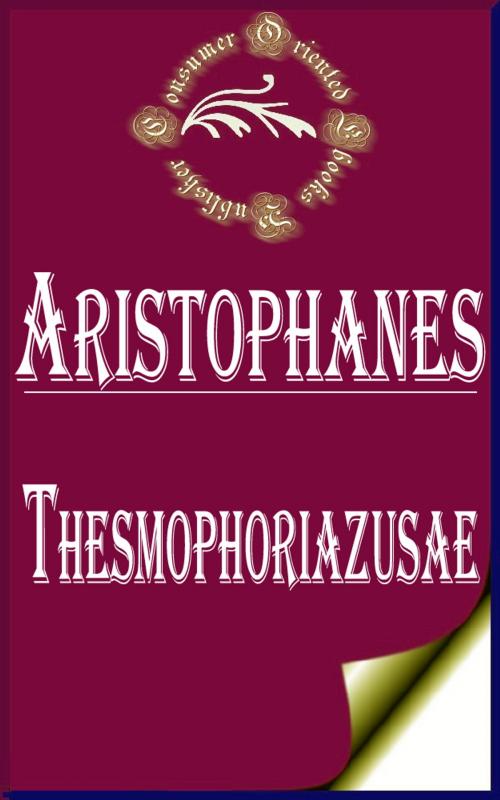Thesmophoriazusae
Nonfiction, Entertainment, Drama, Greek & Roman, Fiction & Literature, Social & Cultural Studies, Social Science| Author: | Aristophanes | ISBN: | 1230000273691 |
| Publisher: | Consumer Oriented Ebooks Publisher | Publication: | October 13, 2014 |
| Imprint: | Language: | English |
| Author: | Aristophanes |
| ISBN: | 1230000273691 |
| Publisher: | Consumer Oriented Ebooks Publisher |
| Publication: | October 13, 2014 |
| Imprint: | |
| Language: | English |
Thesmophoriazusae (Greek: Θεσμοφοριάζουσαι Thesmophoriazousai; meaning Women Celebrating the Festival of the Thesmophoria, sometimes also called The Poet and the Women) is one of eleven surviving plays by the master of Old Comedy, the Athenian playwright Aristophanes. It was first produced in 411 BC, probably at the City Dionysia. How it fared in that festival's drama competition is unknown but it is now considered one of Aristophanes' most brilliant parodies of Athenian society, with a particular focus on the subversive role of women in a male-dominated society, the vanity of contemporary poets, such as the tragic playwrights Euripides and Agathon, and the shameless, enterprising vulgarity of an ordinary Athenian, as represented in this play by the protagonist, Mnesilochus. The play is also notable for Aristophanes' free adaptation of key structural elements of Old Comedy and for the absence of the anti-populist and anti-war comments that pepper his earlier work. It was produced in the same year as Lysistrata, another play with a sexual theme.
Thesmophoriazusae (Greek: Θεσμοφοριάζουσαι Thesmophoriazousai; meaning Women Celebrating the Festival of the Thesmophoria, sometimes also called The Poet and the Women) is one of eleven surviving plays by the master of Old Comedy, the Athenian playwright Aristophanes. It was first produced in 411 BC, probably at the City Dionysia. How it fared in that festival's drama competition is unknown but it is now considered one of Aristophanes' most brilliant parodies of Athenian society, with a particular focus on the subversive role of women in a male-dominated society, the vanity of contemporary poets, such as the tragic playwrights Euripides and Agathon, and the shameless, enterprising vulgarity of an ordinary Athenian, as represented in this play by the protagonist, Mnesilochus. The play is also notable for Aristophanes' free adaptation of key structural elements of Old Comedy and for the absence of the anti-populist and anti-war comments that pepper his earlier work. It was produced in the same year as Lysistrata, another play with a sexual theme.















